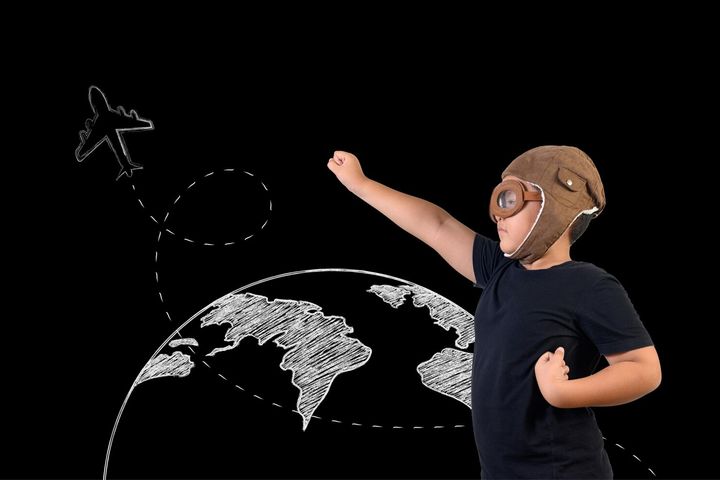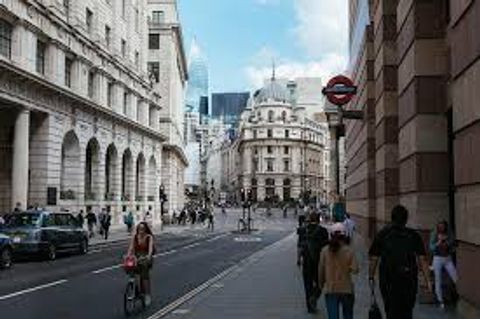
Explore The Future of Travel: Smart, Sustainable, and Seamless Journeys
Travel is undergoing a fundamental transformation. For decades, the focus has been primarily on the destination itself. Today, a new paradigm is emerging, defined by three key pillars: smart, sustainable, and seamless. This shift is not a passing trend but a necessary evolution in response to the challenges and demands of the modern world.
Smart travel uses technology like artificial intelligence (AI), big data, and biometrics to create a personalized, efficient, and proactive travel experience.
Sustainable travel prioritizes minimizing the environmental footprint and upholding social responsibility to preserve destinations for future generations.
Seamless travel aims to eliminate friction points and stress, creating a smooth journey from the initial planning stages to the final return home.
The Importance of This Shift

This transformation is not just about convenience; it is a critical response to global challenges that affect travelers, businesses, and communities alike.
Who is affected?
Travelers benefit from personalized recommendations, stress-free logistics, and the ability to make choices that align with their values.
Travel companies, including airlines, hotels, and tour operators, can increase efficiency, reduce costs, and attract new customers by providing enhanced experiences.
Local communities are better protected through sustainable tourism models that ensure economic benefits are distributed fairly and cultural heritage is preserved.
Problems It Solves
Overtourism: Many popular destinations are overwhelmed by a high volume of visitors, leading to environmental damage and a strained local infrastructure. Smart systems can help distribute tourist flow more evenly, while a focus on sustainable and "slow travel" encourages a deeper, less impactful exploration.
Environmental Impact: The travel and transport sectors are significant contributors to greenhouse gas emissions. The shift towards sustainable aviation fuels, the use of rail networks, and carbon offsetting programs are crucial steps in reducing the industry's carbon footprint.
Logistical Stress: The process of planning and executing a trip can be complex and stressful. Smart technologies simplify this by consolidating bookings, creating personalized itineraries, and automating processes. The adoption of seamless technologies, like biometric check-ins at airports, saves valuable time and reduces anxiety.
Recent Updates and Trends
The past year, from mid-2024 to mid-2025, has seen rapid advancements that are shaping the future of travel.
AI-Powered Travel Planning: AI-driven travel planners are now moving from passive assistance to proactive functionality. These tools can not only book flights and hotels but also autonomously optimize itineraries based on changing schedules, offer real-time recommendations for dining and activities, and even assist with expense reports for business travelers. This shift is making travel planning more personalized and less labor-intensive.
Biometrics at Airports: Biometric identification is becoming a standard feature at many airports worldwide. Passengers can use facial recognition technology to move through checkpoints—including check-in, bag drop, and boarding gates—without repeatedly showing their passport or boarding pass. This not only speeds up the process but also enhances security and provides a truly contactless, seamless experience.
Sustainable Aviation Fuels (SAF): To address the aviation industry's carbon emissions, airlines and fuel producers are rapidly increasing their investment in Sustainable Aviation Fuels (SAF). Made from waste materials and other sustainable feedstocks, SAF can significantly reduce carbon emissions compared to traditional kerosene. The EU has mandated that all flights departing from EU airports must use at least a 2% SAF blend starting in 2025, a percentage that will increase over the coming years.
Rise of Regenerative Tourism: Moving beyond simply "not doing harm," regenerative tourism is a growing trend that aims to actively improve and restore destinations. This can involve travelers participating in reforestation projects, contributing to conservation efforts, or supporting small, community-run businesses. This approach leaves a place better than it was found, fostering a positive impact on both the environment and local culture.
Laws and Policies
The shift towards a smarter and more sustainable travel industry is influenced by various laws and regulations, particularly in major economic regions like the European Union.
EU Data Privacy Laws: With the increased use of biometric data for seamless travel, data privacy is a major concern. The General Data Protection Regulation (GDPR) provides a strict framework for how personal data, including sensitive biometric information, is collected, stored, and used. Companies must obtain explicit consent from travelers before processing their biometric data and must implement robust security measures to protect it.
"Fit for 55" Package: The EU's "Fit for 55" legislative package is a comprehensive set of proposals designed to reduce greenhouse gas emissions by at least 55% by 2030. This package directly impacts the travel industry through initiatives like the ReFuelEU Aviation Initiative. This law mandates the gradual increase of Sustainable Aviation Fuel (SAF) in jet fuel supplied at EU airports, creating a legal obligation for the industry to decarbonize its operations.
Emissions Trading System (ETS): The EU Emissions Trading System is a cap-and-trade program that covers flights within Europe. It requires airlines to buy and trade allowances for their CO2 emissions. This system creates a financial incentive for airlines to invest in cleaner technologies and more fuel-efficient operations. Since 2024, the number of free allowances given to airlines has been steadily reduced, making it more expensive to emit carbon and further pushing the industry toward sustainable practices.
Tools and Resources
Travelers have an expanding range of tools and resources to help them plan smart, sustainable, and seamless journeys.
Booking Platforms with Sustainability Filters: Major online travel agencies and hotel booking websites are now incorporating sustainability filters into their search functions. These filters allow users to search for accommodations that have eco-certifications, use renewable energy, or have robust waste management programs. This makes it easier to find environmentally friendly options.
Carbon Footprint Calculators: Numerous online tools and apps allow travelers to calculate the carbon footprint of their trips. By entering information such as the mode of transport and distance, these calculators provide a clear estimate of emissions. Many also offer the option to offset these emissions by contributing to verified climate protection projects.
AI Travel Assistants: AI-powered applications can help with every stage of the travel process. These tools can analyze user preferences to recommend personalized itineraries, find deals on flights and hotels, and act as a digital concierge to assist with on-the-go needs, such as finding a local restaurant or a museum.
Mobile Apps for Seamless Travel: Apps from airlines and airports are central to the seamless travel experience. They provide digital boarding passes, real-time flight updates, and airport maps. They can also integrate with biometric systems to allow for a quick and easy passage through security and boarding, eliminating the need for physical documents.
Frequently Asked Questions
What does it mean to travel sustainably?
Sustainable travel means making conscious choices to minimize your negative impact on the environment and maximize your positive impact on the local community. This includes choosing eco-friendly transportation, staying in certified sustainable accommodations, supporting local businesses, and respecting the local culture and natural environment.
How is artificial intelligence making travel "smarter"?
AI makes travel smarter by personalizing the experience. It can analyze your past trips and preferences to suggest tailored itineraries and activities. During a trip, AI-powered chatbots and virtual assistants can provide real-time support, helping with rebooking flights, finding information, and handling service requests, all of which make the journey more efficient and enjoyable.
Is sustainable travel more expensive?
Not necessarily. While some sustainable options, such as eco-certified hotels or carbon offsets, may come with a premium, many sustainable practices can save money. For example, opting for public transportation like trains or buses instead of flights or taxis can be more economical. Supporting local eateries and markets often costs less than dining at large chain restaurants.
What are biometric controls at airports?
Biometric controls are security and identity verification systems that use a person's unique physical characteristics, such as their face, fingerprints, or iris, to confirm their identity. At airports, this technology allows travelers to move through checkpoints without repeatedly presenting their passports or boarding passes, creating a faster, more streamlined, and contactless experience.
Conclusion
The future of travel is an exciting blend of technological innovation and a growing collective awareness of our global responsibilities. The convergence of smart, sustainable, and seamless solutions is not just making travel more convenient; it's transforming it into a more conscious and enriching experience. Technology streamlines the journey, while a focus on sustainability ensures that the places we visit remain beautiful and vibrant for generations to come. This evolution is a shared responsibility, driven by the forward-thinking choices of both the travel industry and the travelers themselves.










